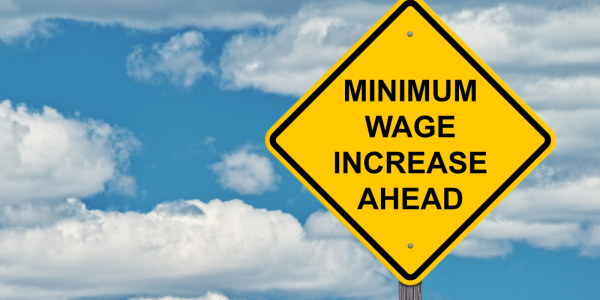Low paid self-employed may well be impacted by today’s minimum wage rate increases, explains LITRG
Whilst welcoming today’s announcement that benefits, including universal credit, will rise by 10.1% from April 2023, LITRG are highlighting that some self-employed universal credit claimants may not see the full value of the rise. This is because the artificial minimum income floor that is applied to some low paid self-employed claimants in universal credit is directly linked to the minimum wage which will also rise from 1 April 2023.

Self-employed universal credit claimants, who are found by DWP to be gainfully self-employed1, may be subject to the minimum income floor (MIF)2. If the MIF applies, the claimant’s actual earnings from self-employment are ignored and instead their universal credit is calculated based on the MIF.
The MIF is usually calculated as 35 hours a week x relevant minimum wage rate, less a deduction for notional tax and national insurance3. One impact of the MIF is that if a self-employed claimant earns a low amount in a particular assessment period, for example because they had less work or because they had a large business expense to pay, their universal credit will not increase to reflect their fall in actual income.
Victoria Todd, Head of LITRG, said:
“Self-employed workers are not entitled to the minimum wage so today’s announcement that the national living wage will rise by over 9.7% from 1 April 2023 may well have passed them by. However, the national minimum wage is used to set the level of the minimum income floor for some self-employed universal credit claimants.
“If the minimum income floor applies to a self-employed worker, that will therefore also increase from April 2023 as a direct result of the announced increase in the minimum wage. The MIF is effectively substituted for the person’s actual self-employed earnings and as income rises, the amount of universal credit awarded usually reduces. As a result, some self-employed universal credit claimants may not see the full value of the April 2023 10.1% increase in universal credit. This may well be detrimental for those self-employed workers who cannot simply increase their income in response to a minimum wage increase and is yet another complicated interaction between various systems that may catch people unaware.”
Notes for editors
- Gainful self-employment means a UC work coach will review whether the claimant is carrying out their activity as their main employment, whether earnings from it are self-employed earnings and whether it is organised, developed, regular and carried on in expectation of profit. The MIF can only potentially apply if the claimant is first found to be gainfully self-employed.
- The MIF doesn’t affect all self-employed universal credit claimants – some may not be gainfully self-employed, some may have sufficiently high earnings which means the MIF does not apply and some will be exempt from the MIF under various rules, at least temporarily.
- The MIF is not always set at 35 hours; it depends on the circumstances of the claimant. To work out the level of MIF for an individual you need to multiply the minimum wage for their age group by the number of hours that they are expected to work. A notional amount of tax and national insurance is deducted to arrive at the person’s MIF. If their actual earnings are below the level of their MIF, the MIF will be used instead of their actual earnings when calculating their UC award.
